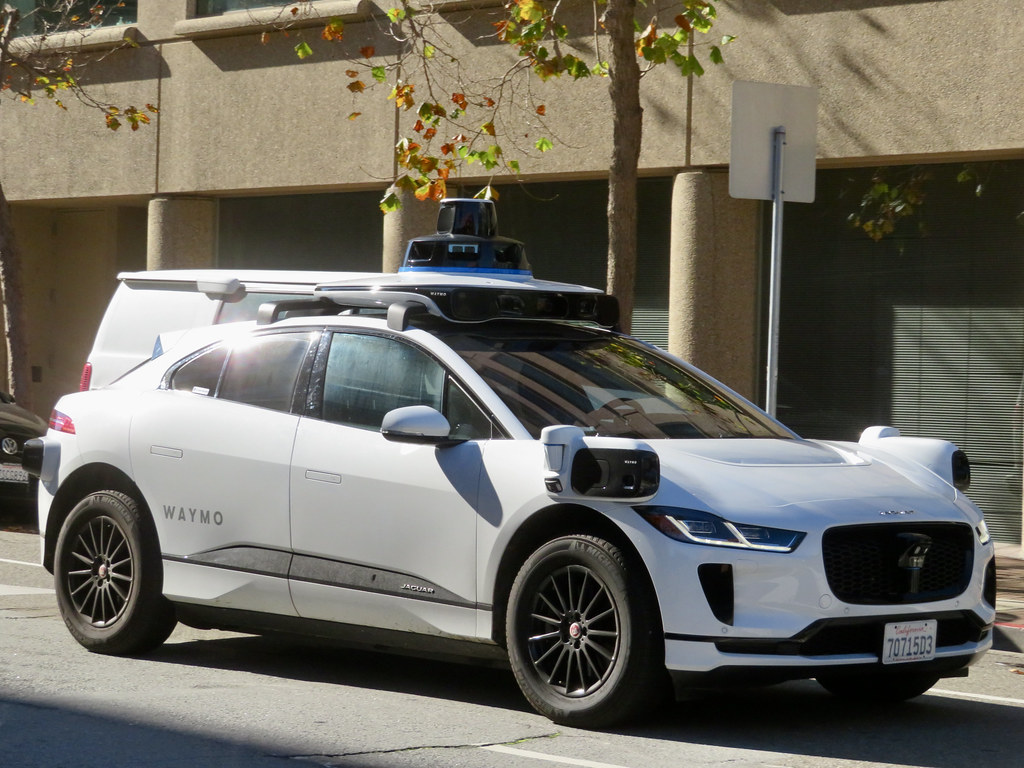
Waymo, Alphabet’s autonomous vehicle subsidiary, is perhaps the most well-known company causing such waves in the industry. It is unique in the United States as a robotaxi service that makes money. Their season is off to an amazing start! They are running well over 200,000 paid robotaxi rides per week in their Tier 1 cities, including Los Angeles, San Francisco, Phoenix and Austin. No doubt, Waymo is looking to expand its footprint. Commercial services in Atlanta, Miami and Washington, D.C. are all expected to start over the next two years.
Waymo’s new robotaxi business is bringing in increasing amounts of revenue. It’s pouring its profits back into R&D for the foreseeable future. The company’s fleet is growing when it comes to specialized equipment. It’s making major investments in vehicle maintenance and in building charging infrastructure. For reference, last year Alphabet poured an eye-popping $5 billion just into Waymo. This investment raised Waymo’s post-money valuation to greater than $45 billion after a previous round of $5.6 billion from other investors.
Financial Losses and Exploring Alternative Revenue Streams
While Waymo’s growth trajectory appears promising, it remains classified under Alphabet’s “other bets” segment, which reported an operating loss of $1.2 billion in 2024. This financial backdrop may explain Waymo’s exploration of alternative revenue streams, including in-vehicle advertising and data sharing for generative AI models.
Waymo’s business model involves extensive data collection to enhance services and tailor advertisements to users’ interests. Per its privacy policy, the company collects personal data to train AI models aimed at improving safety and overall user experience. This spans maintaining the cleanliness of vehicles, to tracking down misplaced items, to confirming compliance with prohibited activities within cars.
Use of Interior Camera Data for AI Training
The company is now preparing to utilize data from its robotaxis, specifically video from interior cameras linked to rider identities, for training generative AI models. Waymo knows that this effort could raise privacy concerns for passengers. That’s because they are now providing users with the option to not allow their information to be shared with those third parties.
“Any data Waymo collects will adhere to the Waymo One Privacy Policy,” – Ilina
So far, Waymo has not publicly decided the details of its notification or deployment plans when the opt-out feature does come to fruition. Initial drafts show plans for riders to be able to use rides without their personal information being known. Beyond that, this means refusing to release any interior camera data tied to their identities for bank branch or ATM experience training.
“The feature, which is still under development, will not introduce any changes to Waymo’s Privacy Policy, but rather will offer riders an opportunity to opt out of data collection for machine learning training purposes,” – Julia Ilina
Waymo is looking to expand those rides through new, creative ways. As it moves forward, it wants to stay true to its mission to protect privacy. Riders have the right to opt out of having their data shared with third parties. They should allow sharing when it’s necessary for service to operate as intended.
“Opt out of sharing your information with third parties, unless it’s necessary to the functioning of the service.”
What The Author Thinks
Waymo’s efforts to balance privacy and innovation in autonomous vehicles is a necessary step as the company navigates public concerns about data use. Allowing riders to opt out of having their interior camera data shared for AI training is a positive move, offering greater control over personal information. However, the real test will be how effectively Waymo implements these features and maintains transparency, ensuring that privacy doesn’t take a backseat as the company pushes forward with its groundbreaking technology.
Featured image credit: waltarrrrr via Flickr
Follow us for more breaking news on DMR
